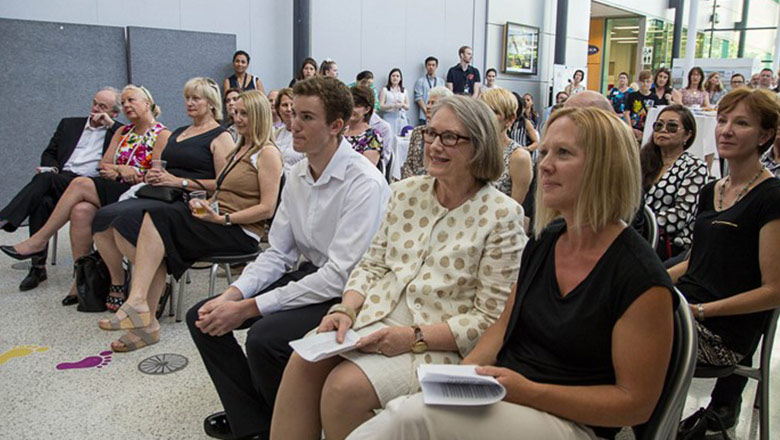Search

News & Events
Driving and DiabetesGetting a driver's license is an important milestone for a young adult in terms of gaining independence, including young people with diabetes.
News & Events
HbA1c Target of 7%, and 7 initiatives we are doing to achieve thisWe have recently set up an HbA1c working party, tasked with the mission of lowering the overall HbA1c across all patients and clinics run by PMH.

News & Events
Research Boost for Diabetes Team at Princess Margaret HospitalAfter an intensely competitive process, the research team at Princess Margaret Hospital were awarded $5.2million from a joint JDRF/NHMRC research grant.

News & Events
Major focus for children's diabetes research in WAResearch into childhood diabetes in Perth has been given a major boost with the launch of the WA Children's Diabetes Research and Education Centre for Research Excellence (CRE) on the eve of World Diabetes Day.
The Rio Tinto Children’s Diabetes Centre; a Breakthrough T1D Centre of Excellence at The Kids Research Institute Australia and Perth Children’s Hospital (PCH), is a global hub for research into type 1 diabetes (T1D) in children.

The Rio Tinto Children’s Diabetes Centre acknowledges the importance of those living with type 1 diabetes (T1D), those that care for them and the type 1 diabetes community (T1D community) in sharing your lived-experience.
A new series of educational videos about managing Type 1 Diabetes and its challenges
For app support, please email diabetes.research@health.wa.gov.au
Find newsletters, guidelines, publications and videos in the one spot.

This easy-to-use comparison device of CGM devices is designed to help you pick the right device for your family.
